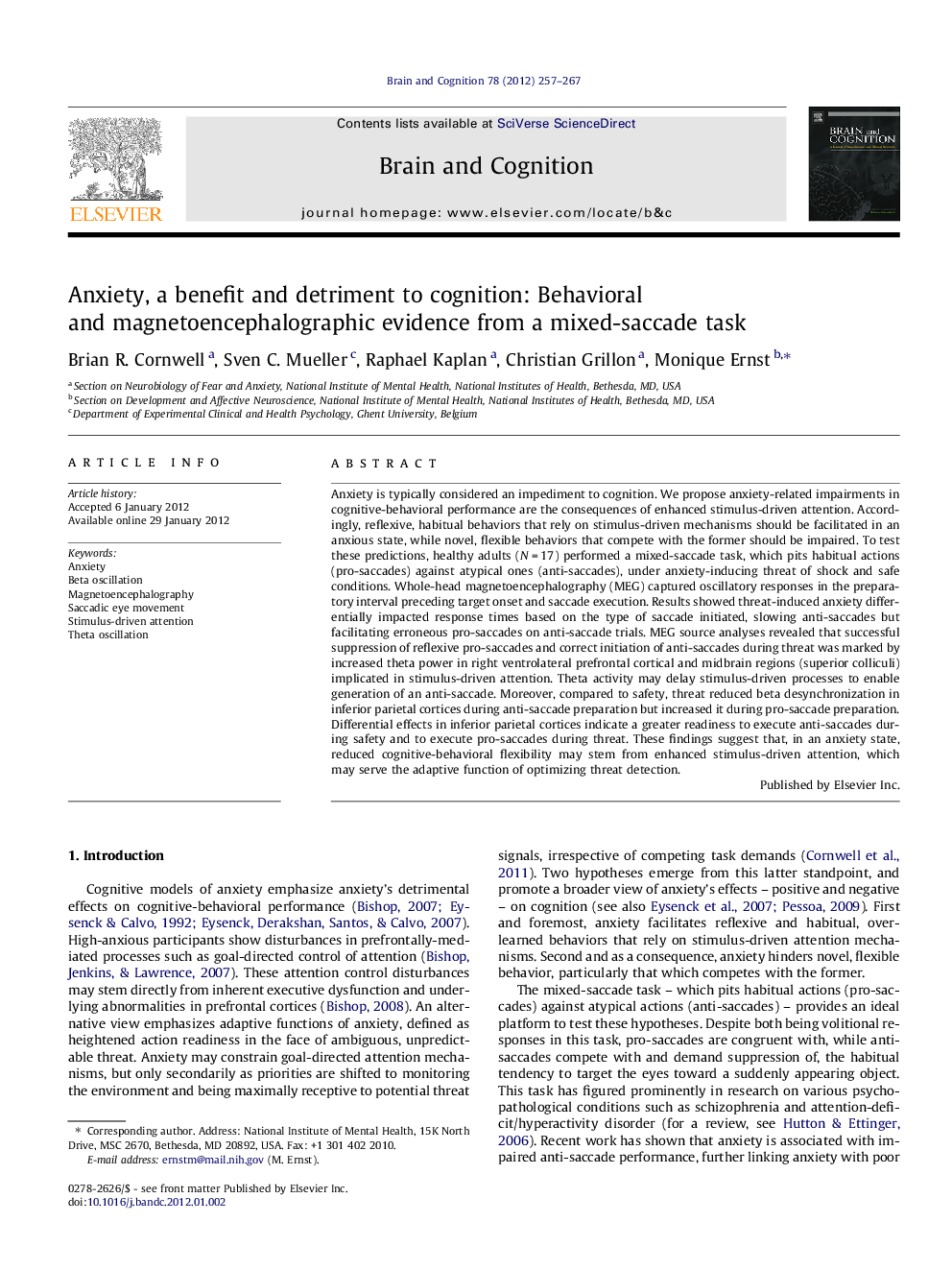| کد مقاله | کد نشریه | سال انتشار | مقاله انگلیسی | نسخه تمام متن |
|---|---|---|---|---|
| 924145 | 921196 | 2012 | 11 صفحه PDF | دانلود رایگان |

Anxiety is typically considered an impediment to cognition. We propose anxiety-related impairments in cognitive-behavioral performance are the consequences of enhanced stimulus-driven attention. Accordingly, reflexive, habitual behaviors that rely on stimulus-driven mechanisms should be facilitated in an anxious state, while novel, flexible behaviors that compete with the former should be impaired. To test these predictions, healthy adults (N = 17) performed a mixed-saccade task, which pits habitual actions (pro-saccades) against atypical ones (anti-saccades), under anxiety-inducing threat of shock and safe conditions. Whole-head magnetoencephalography (MEG) captured oscillatory responses in the preparatory interval preceding target onset and saccade execution. Results showed threat-induced anxiety differentially impacted response times based on the type of saccade initiated, slowing anti-saccades but facilitating erroneous pro-saccades on anti-saccade trials. MEG source analyses revealed that successful suppression of reflexive pro-saccades and correct initiation of anti-saccades during threat was marked by increased theta power in right ventrolateral prefrontal cortical and midbrain regions (superior colliculi) implicated in stimulus-driven attention. Theta activity may delay stimulus-driven processes to enable generation of an anti-saccade. Moreover, compared to safety, threat reduced beta desynchronization in inferior parietal cortices during anti-saccade preparation but increased it during pro-saccade preparation. Differential effects in inferior parietal cortices indicate a greater readiness to execute anti-saccades during safety and to execute pro-saccades during threat. These findings suggest that, in an anxiety state, reduced cognitive-behavioral flexibility may stem from enhanced stimulus-driven attention, which may serve the adaptive function of optimizing threat detection.
► Subjects performed a mixed-saccade task under anxiety-provoking conditions.
► Threat of shock impeded anti-saccades, but facilitated reflexive pro-saccades.
► Enhanced lateral frontal cortical theta preceded correct anti-saccades under threat.
► Parietal beta desynchronization preceded efficient saccade execution.
► Anxiety may reduce cognitive flexibility by promoting stimulus-driven responding.
Journal: Brain and Cognition - Volume 78, Issue 3, April 2012, Pages 257–267